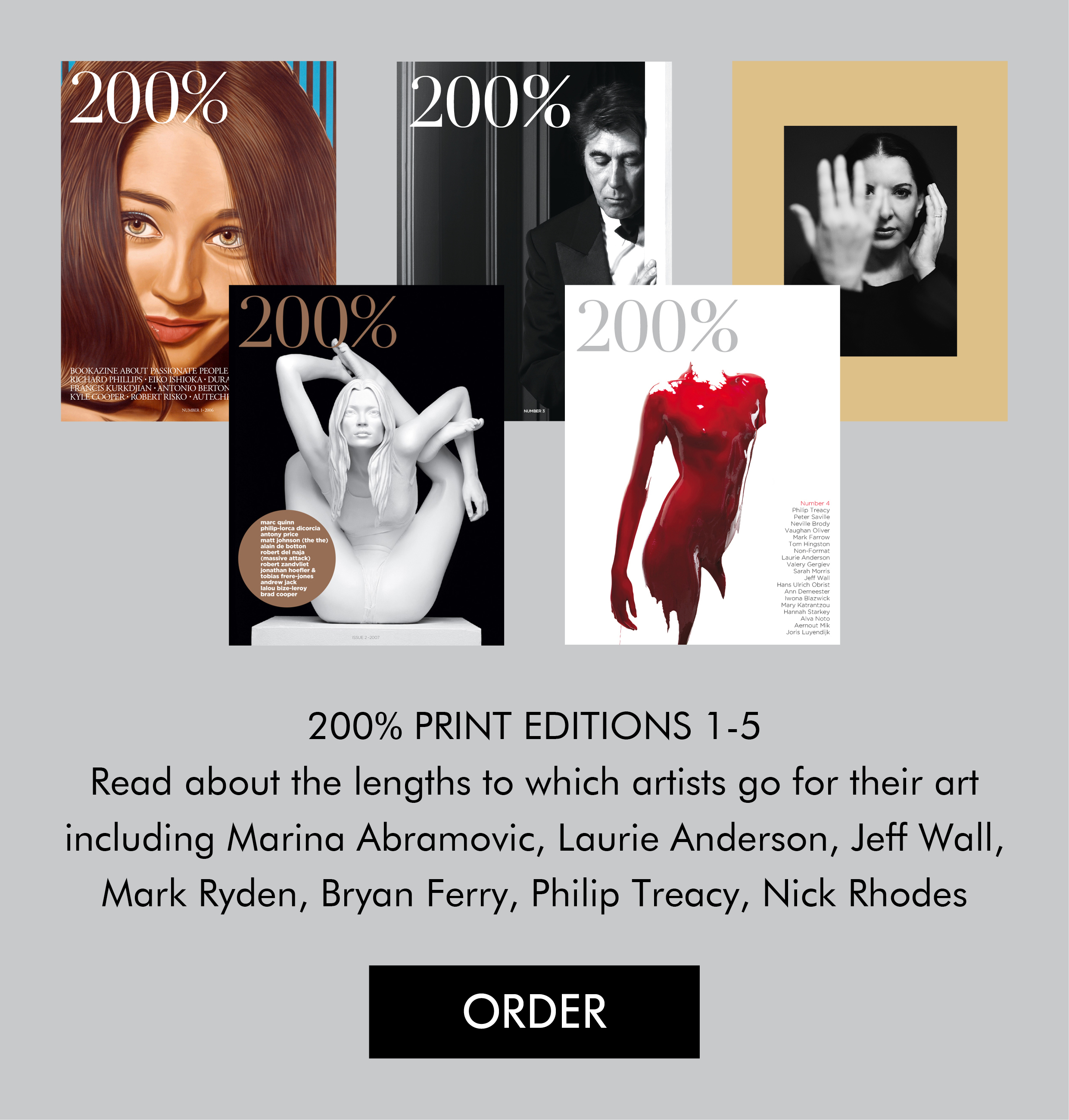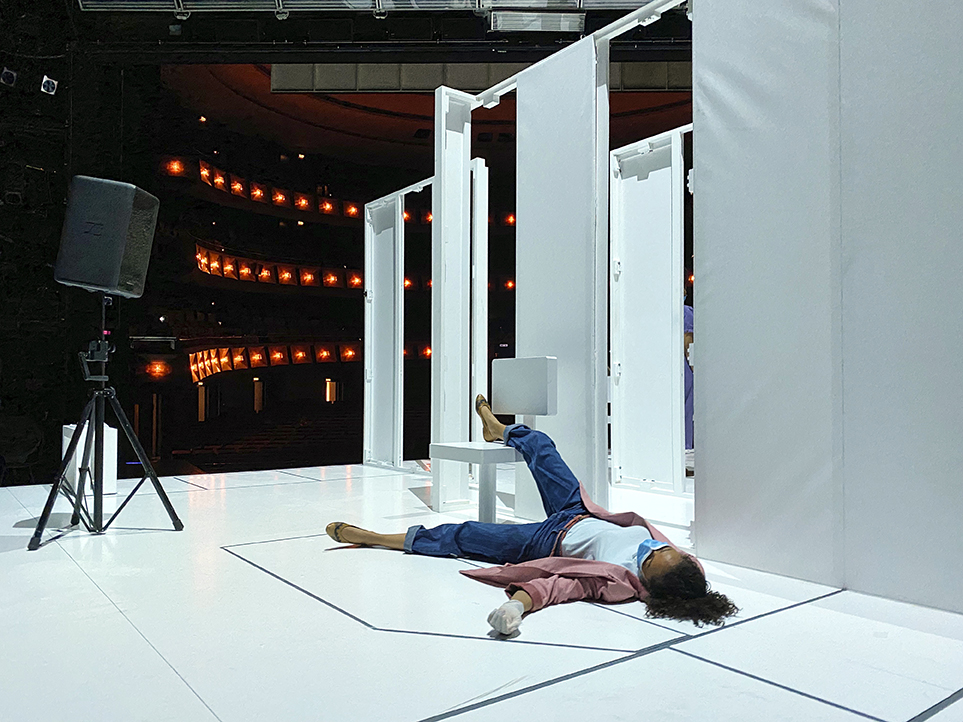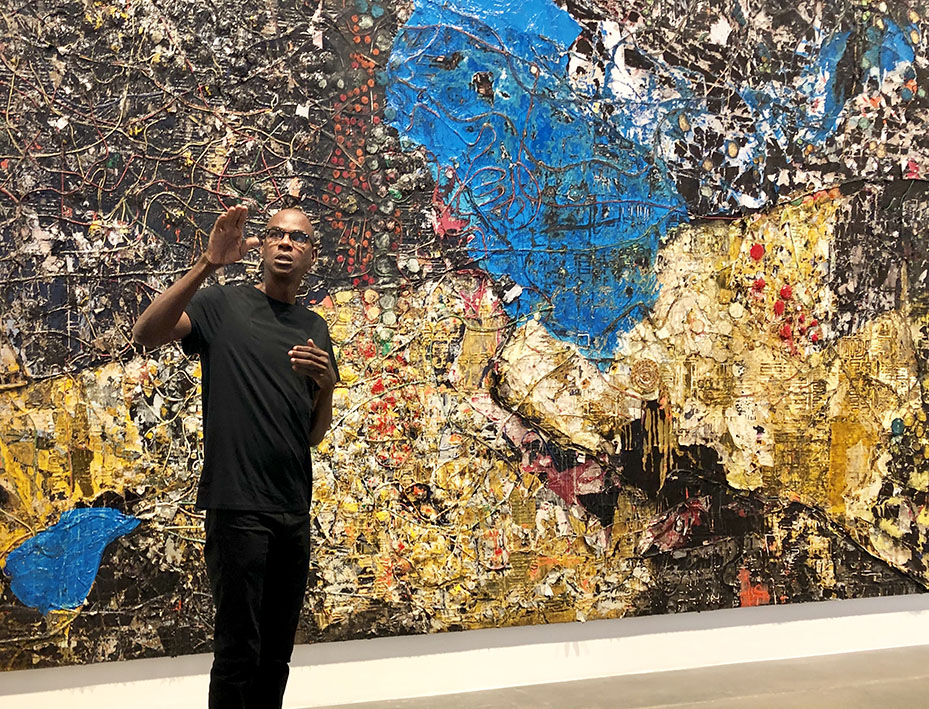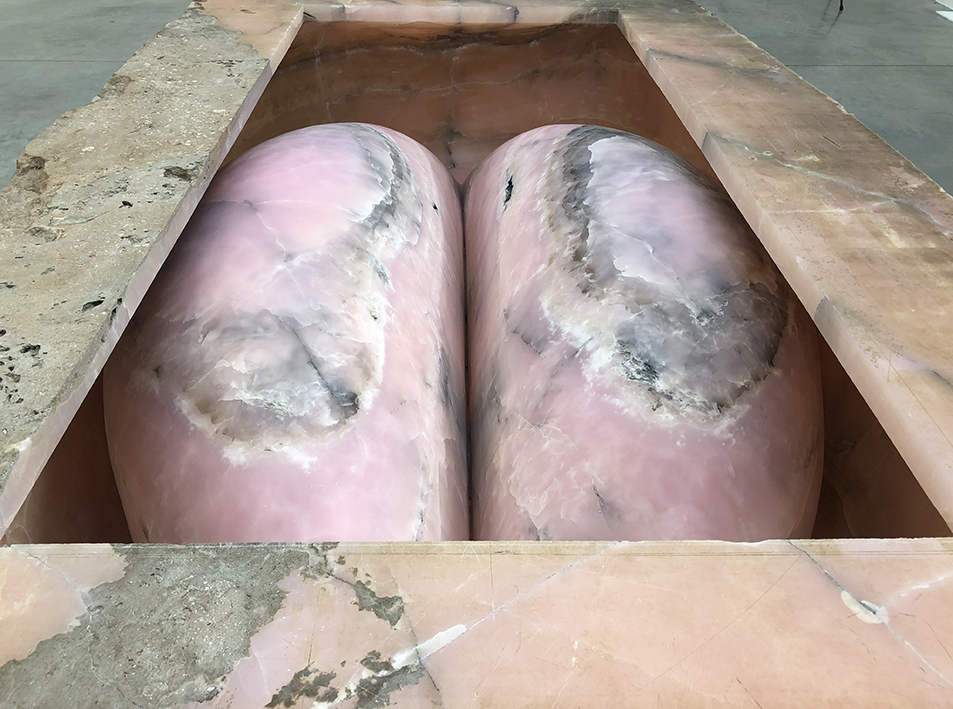 Interviews with guests of Matt Johnson’s Radio Cineola show, including video director Tim Pope; Shoreditch based artist Lucinda Rogers; Zeke Manyika, who played drums on the album ‘Soul Mining’; archivist of the Bishopsgate Institute Stefan Dickers, and author Neil Fraser.
Interviews with guests of Matt Johnson’s Radio Cineola show, including video director Tim Pope; Shoreditch based artist Lucinda Rogers; Zeke Manyika, who played drums on the album ‘Soul Mining’; archivist of the Bishopsgate Institute Stefan Dickers, and author Neil Fraser.
Tim Pope is well-known for the music videos he has directed for musicians like: The Cure, Soft Cell, David Bowie, Paul Weller and of course, for The The. Originally, he was in politics. His first job was at a company called, HyVision, which trained politicians to appear on TV.
200%: Tim, what can you tell me about your time at HyVision?
Tim Pope: It was in the first days of people massaging people’s images. I used to go to number 10 Downing Street, regularly. We used to train the Labour Party members, like the Chancellor of the Exchequer, Dennis Healey, a famous politician with big bushy eyebrows. I’m talking very late 1970s, early 1980s. I didn’t train the politicians myself, though, my boss did. I operated the camera.
200%: Are you politically involved these days?
TP: Well, it’s very interesting. Currently, I’m not politically involved. What happened was, I went out to vote in Horsham Council in Sussex. There I found out that I was unable to vote and I was extremely annoyed about that. I invited them today on Matt’s show to talk about it, why I wasn’t allowed to vote. It was purely due an administrative cock up on the part of my local council. At this moment I don’t actually exist, I’m not here [laughs].
200%: Because you were not registered?
TP: Yes, apparently so. However, that falls on me and not them, which is strange because other people in my household are registered [to vote]. You can get on your high horse when you think of how people died for the right to vote. I think it’s very important to go out there and vote to put your point of view across. Today I’m not able to do that and I’m very upset by that and rather surprised at how upset I am about it.
 200%: Can you recall when you first met Matt?
200%: Can you recall when you first met Matt?
TP: I met him in 1979 with Marc Almond of Soft Cell. At that point, I was doing many videos from him, such as ‘Bedsitter’. I remember Matt coming into a Chinese restaurant on Wardour Street, he had a big shock of blonde hair then and he was incredibly thin, as we both were. We met then and it was another six years before we met again. Suddenly he came to me with some amazing tracks from the ‘Infected’ album. I did the music videos ‘Out of the Blue’, ‘Twilight of a Champion’ and ‘Slow Train to Dawn’ with Neneh Cherry. Subsequently I worked on all of his videos. There must have been at least 10-12 of them. The basement of the building that we are in now was where we actually shot the video ‘Dogs of Lust’.
200%: The video that was shot under extremely hot conditions?
TP: Yes, I felt it wasn’t hot enough with the young lady involved so I thought that I should bring in a few electric bar fires; we lit the whole place up with electric fires. The temperature in there was about 140-150 degrees Fahrenheit. The sweat you see is real. Not that I’m literally engaging in the lyrics like “the temperature is slowly rising, rising, rising” and I make the temperature rise. Luckily he didn’t say it was getting colder, colder, colder because he probably would have been frozen to death [laughs].
 Lucinda Rogers is a Shoreditch based artist and she draws and records the intimate details and broad views of the changing city she lives in, London and Shoreditch in particular.
Lucinda Rogers is a Shoreditch based artist and she draws and records the intimate details and broad views of the changing city she lives in, London and Shoreditch in particular.
200%: How did the idea originate to do this?
Lucinda Rogers: I started drawing the city of New York, both famous scenes and more out-of-the-way parts, over 20 years ago as I have a fascination with the specific look of New York, partly from the movies. The drawings are done from life, sitting on the street etc. Some years later I decided it was also interesting to draw the city I live in, London/East London. I wanted to portray its specific character and the mixture of different architecture that you see crowded together, similar to New York but on a smaller scale. I choose views and buildings that appeal to me aesthetically, architecturally and compositionally. As time passes I have found that these places are changing and disappearing. So the drawings have taken on a different meaning and become a visual record.
 200%: Can you talk about your ‘Reclaim Shoreditch’ initiative?
200%: Can you talk about your ‘Reclaim Shoreditch’ initiative?
LR: Reclaim London is a new alliance of campaign groups across London reflecting the increasing concern about the way London is growing and being developed. The idea of this alliance is for people to share information / knowledge through existence of other groups. At the same time, it will provide a stronger voice for Londoners to demand certain specific changes to make the planning system more fair and accountable.
 Zeke Manyika, a musician originally from Zimbabwe, but has been living in the UK for almost 40 years. After he completed his studies in Glasgow, he started to play music with the Scottish Post-Punk band Orange Juice. When the band took off he moved to London. At the start of the 1980s, Manyika, started to play with various musicians including Paul Weller of The Style Council and The The. He played drums on three tracks of ‘Soul Mining’ and his African roots can be heard in the chant on ‘Giant’.
Zeke Manyika, a musician originally from Zimbabwe, but has been living in the UK for almost 40 years. After he completed his studies in Glasgow, he started to play music with the Scottish Post-Punk band Orange Juice. When the band took off he moved to London. At the start of the 1980s, Manyika, started to play with various musicians including Paul Weller of The Style Council and The The. He played drums on three tracks of ‘Soul Mining’ and his African roots can be heard in the chant on ‘Giant’.
200%: Zeke, how did you meet Matt?
Zeke Manyika: I met him through Stevo who owned the managing company/record label Some Bizarre. We just hit it off and became really good friends. On the ‘Soul Mining’ album, I played drums on ‘I’ve been Waitin’ for Tomorrow (all of my life)’, ‘The Twilight Hour’ and ‘Giant’. Also, I did the African chant on ‘Giant’. On ‘Infected’ and ‘Dusk’ I didn’t play drums. Instead, I sang the backing vocals and I did a few The The gigs as well.
200%: The drumming on ‘I’ve been Waitin’ for Tomorrow (all of my life)’ is quite aggressive which seems to me not to be your natural style of drumming?
ZM: Matt had something composed on a drum machine, and he explained what he wanted from me. He wanted something quite tough so I just added a touch more aggression to it. However, you’re right, it is not my natural style of drumming. Matt stretched me a little. My drumming is a bit more soulful, a bit more African style, rolling drums etc. He pushed me to do different things so he was very good that way.
200%: Matt told me that the track was recorded in an amazing live room, in the Garden Studios, and engineered by his co-producer Paul Hardiman. Did it take you a while to record the track?
No, it didn’t take long at all: it was completed on the second take.
200%: We can hear your soulful, and African drumming style on ‘Giant’ and there is a fantastic African chant, a call and response at the end of the song. How did it originate?
ZM: Well, Matt came up with the African chant and I suggested the answering bit which I sang. I drummed the track really from the heart. Once Matt described what he wanted, we had the drum machine playing the base drum in the background and I played rolling drums on over it.
I have it on good authority that the drumming on ‘Giant’ inspired Kate Bush for her song ‘Running Up That Hill’. She asked me to play drums on that song. I spent a week in her studio when she was preparing the album. It didn’t work out, though, as I had to go on tour at the end of the week.
 200%: Did you follow the elections closely?
200%: Did you follow the elections closely?
ZM: Yes, I did. The elections has been a bit disappointing. The problem in this country is that the press is so one-sided, owned by people who support only one side of the argument. You have to delve really deep for information to attain a balanced view.
200%: You mean right wing paper supporting the Tories and Guardian supporting Labour?
ZM: Well, I’m not sure if The Guardian is supporting Labour. They lean more towards the Liberals most of the time. Labour is supported by the Daily Mirror which doesn’t sell as well as The Sun, The Sunday Times or The Daily Telegraph.
200%: The election campaigns don’t seem too inspiring, do they?
ZM: It is almost deliberate. Everybody is trying not to make too many mistakes. They all sound the same, I hardly hear any outspoken opinions. I don’t agree at all with Nigel Farage, but he is not afraid to voice his opinion. I wish that opposing politicians would have the courage to follow suit, thereby giving people a choice. As a result, the election has been somewhat strange.
 In 2005, Stefan Dickers came to work at Bishopsgate Institute as he knew it was a wonderful repository of archival and printed material. He is now the Library and Archives Manager and looks after and promotes its unique and world renowned collections on London, labour, Humanism, protest and the archives on the history of lesbian, gay, bisexual and transgender (LGBT).
In 2005, Stefan Dickers came to work at Bishopsgate Institute as he knew it was a wonderful repository of archival and printed material. He is now the Library and Archives Manager and looks after and promotes its unique and world renowned collections on London, labour, Humanism, protest and the archives on the history of lesbian, gay, bisexual and transgender (LGBT).
200%: How did you meet Matt?
SD: I first met Matt when he was promoting his Dad Eddie’s [Johnson] amazing book ‘Tales from The Two Puddings’. We hosted a wonderful exhibition of photographs from the pub’s history in the Library and a launch event which was packed to the rafters! We subsequently bump into each other regularly and I now and again find Matt working away in the Library.
200%: Do you think the role of the Bishopsgate Institute is getting more and more important as the history of Shoreditch is disappearing due to the eastward expansion of the City of London into Shoreditch and historic buildings are being destroyed for skyscrapers.
SD: It’s my job to make sure that the history of Shoreditch and the East End doesn’t disappear by making sure the paper, digital and photographic record of the area is saved for generations to come. We actively collect current material about the area and catalogue it as history is happening all around us, for good or for bad, as we speak. Historical material is also a very powerful tool for understanding change and can be an effective weapon in campaigning against the destruction of historic buildings and areas. This has been proved in several recent cases.
200%: How is the situation with Libraries in the UK? Are they closing their doors as they are not able to support themselves?
SD: It is a terrible time for libraries right now as many face cuts in budgets and staffing. If a local authority has to make cuts, it always seems to be libraries and archives that suffer the brunt. We are also witnessing privatisation sneak into the library, museum and archive world. We must all remain vigilant in the coming years of Tory rule and campaign against any measures that place services under threat. Libraries are powerful tools and everyone must have access to books and knowledge.
200%: How can libraries stay relevant in times of the reduction of amount done by young readers and people obtaining their news and information from the Internet?
SD: Libraries and archives are still highly relevant, even though increasingly so much knowledge is available online. The material they contain is unique and the role of the librarian and archivist is changing. The profession is now (and must be) more proactive; seeking to go out and engage people with the information libraries and archives hold. Archives are not just for academics. They are everyone’s history and heritage. It’s our job to make sure all communities are aware and know they can access them. Similarly, to be relevant, libraries and archives must tell everyone’s stories, not just those of the rich and famous!
 ‘Towards the City’ is the website of writer, Neil Fraser. He is currently working on the authorised biography of The The, due to be published by the Aardvark Bureau in 2016.
‘Towards the City’ is the website of writer, Neil Fraser. He is currently working on the authorised biography of The The, due to be published by the Aardvark Bureau in 2016.
200%: You wrote on your website: “It would be a mistake to think that the Labour Party could offer a real alternative to the right-wing shop front of the bankers and their self-serving chums”. Was the result of the elections hardly a surprise, was it self-evident?
Neil Fraser: I think what I am saying here is that to my mind the Labour Party do not pose a genuine alternative in policy terms. It seems clear to me that banks, large corporations and key individuals hold the power, and position key people within government and the media accordingly. Lobbying in this country is no different to that in America. The Labour Party of today is vastly different to the one that was created at the beginning of the 20th century. It is much closer to the American Democratic party in that it is Centrist, rather than left-wing. The media like to puff-up the “left-wing” aspect of Labour to scare Tory voters and Labour don’t mind this because they can pretend to still be left-wing – but a closer look at policy reveals this to be a bit of a sham.
In terms of the actual result… most commentators and polls indicated a hung parliament. The fact is that the Tories gained power thanks to a handful of marginal seats. Closer inspection will reveal how this achieved but that would be like waiting for the horse to disappear before analysing just how the gate happened to be left open.
 200%: What does it say about British politicians that they can’t inspire their electorate anymore; unlike Nelson Mandela or Barack Obama in his first term of office. Is it a sign of the times?
200%: What does it say about British politicians that they can’t inspire their electorate anymore; unlike Nelson Mandela or Barack Obama in his first term of office. Is it a sign of the times?
NF: They can’t inspire the electorate because the majority know that the government are serving themselves and a select few, rather than the people as a whole. In recent years we have had expense scandals revealing most MPs to be liars, and cheats; a government (Labour) who bailed out the banks at the tax-payers expense and an ensuing government (Tory) who did nothing about it; an increasing erosion of our civil rights; austerity that sees the majority suffer while the rich get richer; the slow destruction of the NHS and the impending privatisation of education… not to mention the sell-off of utilities/business/land etcetera to foreign interests. Even people who grasp the wrong end of the stick and feel that the country is in such a state because of immigration and such like, at least understand that all is not well. I guess, as far as government is concerned it all boils down to the maxim of being able to fool enough people all of the time.
Words are interesting deceivers. The media keep referring to a Conservative majority but the fact is the overwhelming majority didn’t vote for them. I think deep down, many feel apathetic because the only realistic alternative (Labour) is just a watered down version. This time around the bankers and their chums (many of them in government) felt that the Tory party would serve their interests better, and played a part in ensuring this would happen.
Nelson Mandela was a representative of the oppressed majority in South Africa, but he was a symbol – which isn’t to diminish him as a remarkable man. What I mean is – he wasn’t solely responsible for the downfall of apartheid and was prepared to suffer for his beliefs – there are no politicians in the UK who can offer this sort of integrity. Obama is just a marketing strategy and it worked, but he doesn’t deserve to be mentioned in the same sentence as Mandela. I think he is a controlled puppet and am not alone in that belief.
 200%: Does every nation get the government it deserves?
200%: Does every nation get the government it deserves?
NF: Yes and no. It may be easy to do, but do babies deserve to have candy taken from them?
Interview written and conducted by Thierry Somers
Pictures of Zeke Manyika / Neil Maskell and Stefan Dickers by Gerald Jenkins
http://www.timpope.tv/
www.lucindarogers.co.uk
http://www.bishopsgate.org.uk/
http://www.towardsthecity.com/
www.geraldjenkins.co.uk










